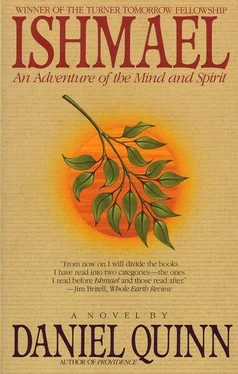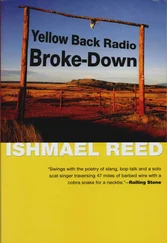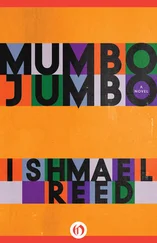“True,” I said, just to be agreeable.
“That’s what today is for: We’re packing a bag for our journey together. I’m going to throw into this bag some things I won’t want to stop and pick up later on. These things will mean little or nothing to you right now. I’ll just show them to you briefly and then toss them into the bag. That way you’ll recognize them when I take them out later on.”
“Okay.”
“First, some vocabulary. Let’s have some names so we don’t have to go on talking about ‘the people of your culture’ and ‘the people of all other cultures.’ I’ve used various names with various pupils, but I’m going to try a new pair with you. You’re familiar with the expression ‘Take it or leave it.’ Using them in this sense, do the words takers and leavers have any heavy connotation for you?”
“I’m not sure what you mean.”
“I mean, if I call one group Takers and the other group Leavers, will this sound like I’m setting up one to be good guys and the other to be bad guys?”
“No. They sound pretty neutral to me.”
“Good. So henceforth I’m going to call the people of your culture Takers and the people of all other cultures Leavers.”
I hmm’ed a bit. “I have a problem with that.”
“Speak.”
“I don’t see how you can lump everyone else in the world into one category like that.”
“This is the way it’s done in your own culture, except that you use a pair of heavily loaded terms instead of these relatively neutral terms. You call yourselves civilized and all the rest primitive . You are universally agreed on these terms; I mean that the people of London and Paris and Baghdad and Seoul and Detroit and Buenos Aires and Toronto all know that—whatever else separates them—they are united in being civilized and distinct from Stone Age peoples scattered all over the world; you consider or recognize that, whatever their differences, these Stone Age peoples are likewise united in being primitive .”
“Yes, that’s right.”
“Would you be more comfortable if we used these terms, civilized and primitive ?”
“Yes, I suppose I would be, but only because I’m used to them. Takers and Leavers is fine with me.”
“Second: the map. I have it. You don’t have to memorize the route. In other words, don’t worry if, at the end of any day, you suddenly realize that you can’t remember a word I’ve said. That doesn’t matter. It’s the journey itself that’s going to change you. Do you see what I mean?”
“I’m not sure.”
Ishmael thought for a moment. “I’ll give you a general idea of where we’re heading, then you’ll understand.”
“Okay.”
“Mother Culture, whose voice has been in your ear since the day of your birth, has given you an explanation of how things came to be this way . You know it well; everyone in your culture knows it well. But this explanation wasn’t given to you all at once. No one ever sat you down and said, ‘Here is how things came to be this way, beginning ten or fifteen billion years ago right up to the present.’ Rather, you assembled this explanation like a mosaic: from a million bits of information presented to you in various ways by others who share that explanation. You assembled it from the table talk of your parents, from cartoons you watched on television, from Sunday School lessons, from your textbooks and teachers, from news broadcasts, from movies, novels, sermons, plays, newspapers, and all the rest. Are you with me so far?”
“I think so.”
“This explanation of how things came to be this way is ambient in your culture. Everyone knows it and everyone accepts it without question.”
“Okay.”
“As we make our journey here, we’re going to be reexamining key pieces of that mosaic. We’re going to be taking them out of your mosaic and fitting them into an entirely different mosaic: into an entirely different explanation of how things came to be this way .”
“Okay.”
“And when we’re finished, you’ll have an entirely new perception of the world and of all that’s happened here. And it won’t matter in the least whether you remember how that perception was assembled. The journey itself is going to change you, so you don’t have to worry about memorizing the route we took to accomplish that change.”
“Right. I see what you mean now.”
“Third,” he said, “definitions. These are words that will have a special meaning in our discourse here. First definition: story . A story is a scenario interrelating man, the world, and the gods.”
“Okay.”
“Second definition: to enact . To enact a story is to live so as to make the story a reality. In other words, to enact a story is to strive to make it come true. You recognize that this is what the people of Germany were doing under Hitler. They were trying to make the Thousand Year Reich a reality. They were trying to make the story he was telling them come true.”
“Right.”
“Third definition: culture . A culture is a people enacting a story.”
“A people enacting a story. And a story again is… ?”
“A scenario interrelating man, the world, and the gods.”
“Okay. So you’re saying that the people of my culture are enacting their own story about man, the world, and the gods.”
“That’s right.”
“But I still don’t know what that story is.”
“You will. Don’t fret about it. For the moment all you have to know is that two fundamentally different stories have been enacted here during the lifetime of man. One began to be enacted here some two or three million years ago by the people we’ve agreed to call Leavers and is still being enacted by them today, as successfully as ever. The other began to be enacted here some ten or twelve thousand years ago by the people we’ve agreed to call Takers, and is apparently about to end in catastrophe.”
“Ah,” I said, meaning I know not what.
“If Mother Culture were to give an account of human history using these terms, it would go something like this: ‘The Leavers were chapter one of human history—a long and uneventful chapter. Their chapter of human history ended about ten thousand years ago with the birth of agriculture in the Near East. This event marked the beginning of chapter two, the chapter of the Takers. It’s true there are still Leavers living in the world, but these are anachronisms, fossils—people living in the past, people who just don’t realize that their chapter of human history is over.’ ”
“Right.”
“This is the general shape of human history as it’s perceived in your culture.”
“I would say so.”
“As you’ll come to see, what I’m saying is quite different from this. The Leavers are not chapter one of a story in which the Takers are chapter two.”
“Say that again?”
“I’ll say it differently. The Leavers and the Takers are enacting two separate stories, based on entirely different and contradictory premises. This is something we’ll be looking at later, so you don’t have to understand it right this second.”
“Okay.”
Ishmael scratched the side of his jaw thoughtfully. From my side of the glass, I heard nothing of this; in imagination it sounded like a shovel being dragged across gravel.
“I think our bag is packed. As I said, I don’t expect you to remember everything I’ve thrown into it today. When you leave here, everything will probably all just turn into one great muddle.”
“I believe you,” I said with conviction.
Читать дальше
Конец ознакомительного отрывка
Купить книгу












